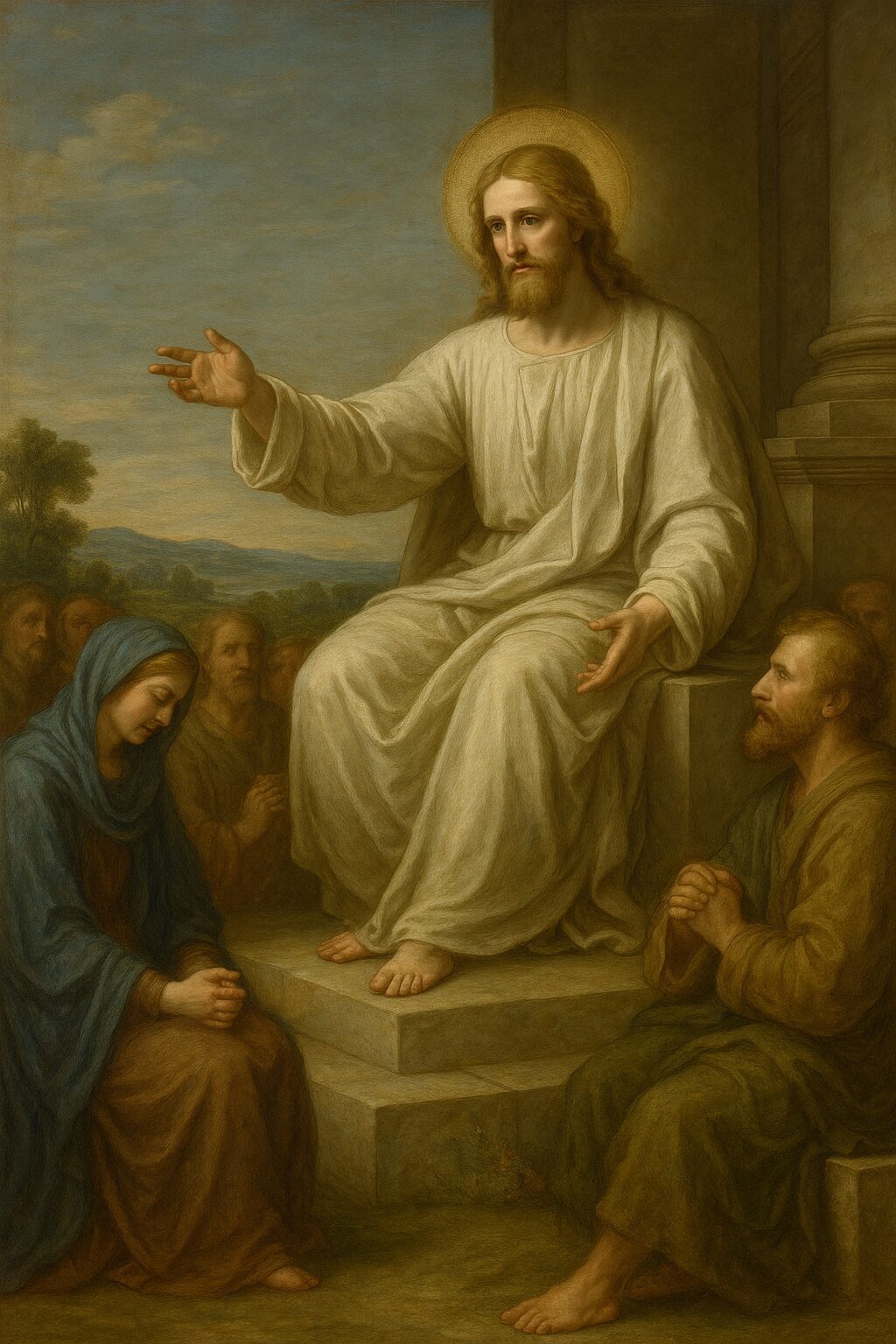When we talk about the Judgment Seat of Christ, many believers immediately feel uneasy. Some imagine Jesus replaying every sin since their salvation, exposing failures for all to see. But that picture does not align with Scripture. Instead, the Bema Seat Judgment of Christ is a moment of accountability and reward for those who belong to Him.
Paul writes in 2 Corinthians 5:10 (ESV):
“For we must all appear before the judgment seat of Christ, so that each one may receive what is due for what he has done in the body, whether good or evil.”
This judgment is not about salvation—that was settled at the cross. It is about how we lived after being saved.
What Is the Bema Seat?
The word Bema comes from the Greek athletic games. After races, competitors stood before a raised platform where the judge awarded prizes. Paul borrows this imagery to show that believers will one day stand before Christ—not to face condemnation, but to receive rewards for faithful service.
Paul explains in 1 Corinthians 3:13–15 that each person’s work will be tested by fire. Some works will endure like gold, silver, and precious stones; others will burn up like wood, hay, and straw. Those whose works remain will receive a reward, while others will suffer loss. Yet Paul adds clearly: “he himself will be saved, but only as through fire.” Salvation is not at stake—the quality of our labor is.
Sin Was Dealt With at the Cross
One of the greatest sources of confusion comes from thinking the Bema Seat is about judging sin. But Scripture is clear:
- Romans 8:1 — “There is therefore now no condemnation for those who are in Christ Jesus.”
- John 5:24 — “Whoever hears my word and believes him who sent me has eternal life. He does not come into judgment, but has passed from death to life.”
Sin was judged once and for all when Jesus bore it on the cross. At the Bema Seat, Jesus will not say to a believer, “Depart from me, I never knew you.” Those words (Matthew 7:23) apply to false professors who never belonged to Him. Instead, Jesus will evaluate the works of His people and reward them according to faithfulness.
Good Works and Worthless Works
The Bible describes two categories of works that will be revealed at the Bema Seat:
Good Works (Enduring, Rewarded)
These reflect obedience to Christ, love for others, and motives that honor God:
- Sharing the gospel and making disciples (Matthew 28:19–20)
- Serving quietly without seeking recognition (Matthew 6:3–4)
- Giving generously (2 Corinthians 9:6–7)
- Persevering through trials with faith (James 1:12)
- Shepherding others faithfully (1 Peter 5:2–4)
These are the “gold, silver, and precious stones”—works with eternal value.
Worthless Works (Burned Up, No Reward)
These may not look sinful outwardly but lack eternal worth because they were done from selfish motives or neglect:
- Serving for applause rather than Christ (Matthew 6:1–2)
- Using spiritual gifts for personal gain (Philippians 1:15–17)
- Pursuing comfort or wealth as a goal (1 Timothy 6:9–10)
- Religious activity without love (1 Corinthians 13:1–3)
- Ignoring God-given opportunities (James 4:17)
These are the “wood, hay, and straw”—things that cannot stand before Christ’s refining gaze.
Not the Same as Other Judgments
To keep the Bema Seat clear in our minds, it helps to compare it with other judgments mentioned in Scripture:
| Judgment | Who is Present | Scripture | Purpose | Outcome |
|---|---|---|---|---|
| Bema Seat Judgment of Christ | Believers only | 2 Corinthians 5:10; 1 Corinthians 3:12–15 | Evaluate works after salvation | Rewards for faithfulness; loss of reward for worthless works |
| Great White Throne Judgment | Unbelievers only | Revelation 20:11–15 | Judge the unsaved for rejecting Christ | Eternal separation from God, cast into the lake of fire |
| Matthew 7:21–23 (“Depart from me”) | False professors | Matthew 7:21–23 | Expose those who never truly belonged to Christ | Denied entrance into the kingdom, eternal separation |
This comparison clears away fear and confusion. The Bema Seat is not a threat of rejection—it is an evaluation for those who already belong to Jesus.
Why This Matters for Daily Living
Understanding the Bema Seat should change how we live now. Paul urges believers in 1 Corinthians 15:58:
“Therefore, my beloved brothers, be steadfast, immovable, always abounding in the work of the Lord, knowing that in the Lord your labor is not in vain.”
Every prayer, every act of love, every moment of obedience is seen by Christ and carries eternal weight. Even when others do not notice, Jesus does. At the same time, this truth warns us against wasting our lives on pursuits that may look impressive but have no lasting value for God’s kingdom.
Conclusion: Live in the Light of His Return
The Bema Seat Judgment of Christ is not about condemnation—it is about reward. It is both sobering and hopeful. Sobering, because Christ will test the quality of our works. Hopeful, because we know He is faithful and just, and He delights to reward His children.
So we live not in fear, but in anticipation. We live with urgency, investing our time, talents, and treasure into the work of the kingdom. We live for the day when we will see Him face to face and long to hear, “Well done, good and faithful servant.”
Read all of our Principles for Christian Living in the Last Days
Read the Bible Online – We recommend:
The ESV (English Standard Version) for reading
The NASB (New American Standard Bible) for in-depth study
Spread the Gospel; lives depend on it!
I pray, MARANATHA! (Come Quickly, Lord Jesus!)
Your brother in Christ,
Duane
